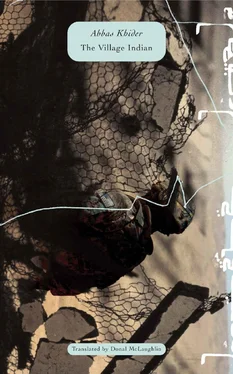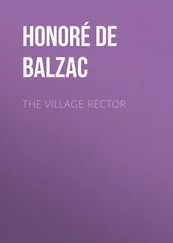Passau seemed to me a wonderful town with its three rivers, its old town, its narrow streets and — despite their goat-like arses — its beautiful women. I lived in an asylum seekers’ home, not far from the town centre, in a room I shared with three other men. Once a week, I received a food parcel from the state. Funny-smelling sausage, colourful hard-boiled eggs, bread and juices. Sometimes, there were also fish fingers but they didn’t have much to do with fish. I also received sixty marks a month as pocket money from the state or, to be precise, the Foreigners’ Registration Office. From the very first moment, I hated that place. The strangest people worked there, bespectacled ‘Darwin-type’ creatures. They didn’t like me, I didn’t like them. Enemies from the outset. Why? I don’t know. But I do know that they always demanded I obey them. But I didn’t want to. ‘Off you go!’ a female staff member snapped at me once, ‘I don’t have any time for you right now!’
‘Don’t speak to me like that!’ I shouted back. ‘I don’t work for your mother.’
‘How dare you!’ she screeched. ‘You won’t be getting any money from us this month.’
The sixty marks kept me in cigarettes for a week, just about. And I wasn’t permitted to work. So I couldn’t earn my keep, however much I might have liked to.
The worst thing was that, in this town, my temple dream resurfaced. The very first day, that strange trembling came over me again and I felt the urge to write. The streets of this town were full of priest’s daughters and muses, some of whom would stretch out half naked on the riverbanks, in the sun, or dance, light-footed, across the squares. Not short of reasons for my pathological paper raids, I descended, greedily on every waste-paper container I could find, be it in a residential complex or in the municipal recycling depot. The people in this town, like many others in the country, have (as I was later to discover) a variety of bins at their disposal — one for glass, one for plastic, one for residual waste and so on. You’d almost think it was a well-stocked supermarket, not a waste-disposal site.
These paper raids increased when I met Olga. She was twenty-five, a Russian of German descent. During the Third Reich, her Jewish grandparents had fled to Russia and died there. Olga later decided to return to Germany, as a former Russian and, now, a German Jewess. I met her in a cafe in Passau. She appealed to me though she was, if anything, a ‘goat beauty’. The heart ignores beauty ideals and other such conceits. We liked each other right away but, sadly, everything was against us. She was from a Jewish family and I from a Muslim one. To top it all, she was still married to a Russian. An alcoholic. He sometimes hit her so much that I had to deal with her bruises. Nonetheless, she didn’t want to leave him. For their child’s sake. She often said, quietly and sadly, ‘If the Russians ever find out I’m with you, you’re dead.’ This period was so full of paper raids and poems that I’ve lost all measure of where, when and how many I wrote.
I was glad to get a residence permit in the end. To be officially entitled to political asylum. And so I decided to take my leave of Passau, Olga and the town’s half-naked women. I left alone. Saying goodbye to Olga was hard for me. Though, again, it was entirely clear to me that the relationship was in no way possible.
Today I live in Munich, far from my previous towns. This city is so unique that I can hardly bear it sometimes. As beautiful as a rose, as a plastic rose. Like a private hospital — totally fucking clean and expensive. I hate the winter here, when the residents’ faces make you think they’ve all just failed an exam. In summer, however, I never want to be away for very long. Suddenly, the town dresses differently. Or, rather, undresses. Like the women along the Isar. And it flirts with you. Like the women with their miniskirts and tender flesh, the colour of milk. And though the Foreigners’ Registration Office and the police in this town have, honestly, never allowed me to lead a calm life — the police used to harass me the minute they’d spot my black hair and brown face out and about in the street — I’ve experienced my temple dream here again, in all its intensity. Because this town is so full of shapely Bavarian ladies with incredibly round breasts and curvy arses — and this, in the land of the ‘goat beauties’. And so my paper raids continue here too.
I’d noticed right away the unusual newspaper boxes — on legs — located on many a street corner. You can take a paper and simply put the required amount of money in the slot. If I’d had the money, I could just as well have bought a proper notebook. Given, however, that my financial means were, as ever, more than just ‘limited’, I had no choice but to succumb to my urge and steal the newspapers and use the narrow margins to write on. I even dipped into the briefcase of my new Bavarian girlfriend. But barely had I opened it when. .
God, how embarrassing! I’d been caught red-handed for the first time. Sara demanded an explanation. From the beginning. Starting with the temple and leading to her briefcase. From then on, she — silently — supported my habit. In her own way, naturally. By leaving her briefcase out on the table and strutting off to the bedroom. Like some priest’s daughter.
I frequently wonder about the fate of languages, given that they entered the world as a curse. God’s curse, when He was angry with humanity for trying to reach Him through the Tower of Babel. Babel isn’t far from my home town Baghdad, just a hundred and twenty kilometres away. My mother was born there. From that point of view, I suppose you can say that I have Babylonian blood in my veins. Shortly after I heard the story of the tower for the first time, my family paid a visit to my grandparents in Babel. I, of course, was dying to see the tower. My grandfather said, ‘The Tower of Babel hasn’t existed for a long time. But if you look very closely, you can still see it.’ It was a long time before I undesrtood what he meant by ‘look very closely’.
A good friend of mine, a student of English philology in Baghdad, wished to continue his studies in Australia. He told me that he thought the tower was no more than a symbol for the various languages. In a letter to me, he asserted that the tower had never really existed and cited several pieces of evidence to support this view. But the curse of the tower was to dog him. As far as Australia, almost, where he hoped to land, illegally. He was swallowed up by the sea. To me, it doesn’t matter whether the tower existed. Whether humanity had indeed brought God to the point where He finally shifted His arse and used His power against them. The one important thing was that the tower was the reason for human beings to want to be able to record and write things as well as to speak languages. Why? Quite simple: if people have many languages, they write in order to protect their own as well as to communicate with others. I can easily imagine that — as is written in the Bible — in the beginning was the word; the word scrawled on a stone in the tower by a madman following the curse: ‘I am the forefather of all authors to come.’
Perhaps as a result of my Babylonian blood, I began to scribble on walls from an early age. Not to protect my language, though. But to annoy older people. Back then, I didn’t know the lines by Heinrich Heine: ‘And it wrote and wrote on the white wall letters of fire; and it wrote and disappeared.’ Nonetheless, I wrote and disappeared. In my intermediate-school years, I adorned the walls with provocative indecencies: ‘The head teacher’s an arsehole.’ ‘The literature teacher’s fucking the cleaner.’ ‘The imam is gay.’ ‘The president is fucking everyone.’ And observed with relish how the teachers, the police and the government officials searched the school for suspects. That was my game. I’d played it for a while before it came to a sad end. The government arrested a large group of boys from our district, labelled them ‘dangerous’, ‘suspicious’. The boys never came back. At first, I thought they’d return all right. Then it was rumoured that they’d admitted, under torture, to writing those slogans. Never again did I write another sentence on the wall. Even today, I’m plagued by the thought that I was responsible for those boys leading a life in prison.
Читать дальше












